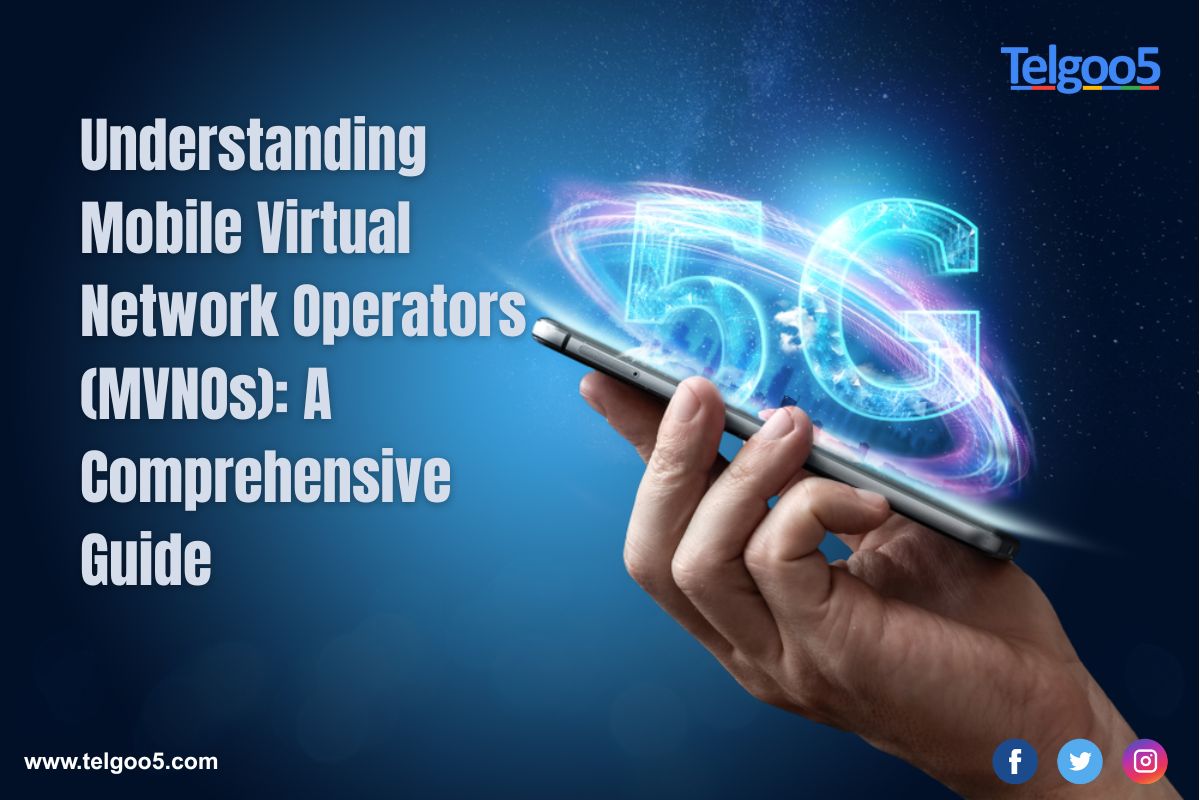
Understanding Mobile Virtual Network Operators (MVNOs): A Comprehensive Guide
In today’s rapidly evolving telecommunications landscape, Mobile Virtual Network Operators (MVNOs) have emerged as innovative players, offering consumers alternative wireless services without owning the underlying network infrastructure. Let’s delve into the creative world of MVNOs, understanding what they are, how they operate, and their importance in the modern telecommunications ecosystem.
What is a Mobile Virtual Network Operator (MVNO)?
A Mobile Virtual Network Operator (MVNO) is a wireless communications service provider that doesn’t own the wireless network infrastructure it uses to provide services to its customers. Instead, MVNOs lease network capacity from traditional Mobile Network Operators (MNOs) and establish their brand, customer service operations, billing support systems, marketing strategies, and sales personnel.
Telgoo5 provides backend support for various MVNOs, helping them manage billing, customer service, and network operations. While specific MVNO brands leveraging Telgoo5’s infrastructure aren’t widely listed, Telgoo5 is recognized for enabling MVNOs to compete with major carriers. If you’re looking for an MVNO that offers competitive call plans and data services, I can help you explore options based on your needs. Are you searching for a budget-friendly provider or one with premium features?
The MVNO Business Model
MVNOs acquire bulk access to an MNO’s network services at wholesale rates and then set their retail prices for consumers. This arrangement creates a win-win situation:
- For MVNOs: Access to established network infrastructure without massive capital investment.
- For MNOs: Additional revenue streams from underutilized network capacity.
- For Consumers: More choices, often at competitive prices.
What Makes MVNOs Unique?
MVNOs typically share some common characteristics that define their business model:
- Established customer base: Most successful MVNOs have access to many existing consumers.
- Brand loyalty: Strong customer allegiance makes selling white-labeled mobile network products and services easier.
- Capital resources: Sufficient investment capacity for front-end systems like marketing, sales, and customer service operations.
Key Responsibilities of MVNOs
Though MVNOs don’t invest in network infrastructure, they must handle several critical functions:
- Marketing and promotion of their mobile products
- Managing billing and invoicing systems
- Customer registration for the network
- Providing subscriber services (balance checks, network top-ups, customer care)
- Distribution of physical assets like SIM cards and mobile devices
Benefits for Mobile Network Operators
MNOs partner with MVNOs for two primary reasons:
- Reaching Untapped Market Segments
MVNOs can help MNOs access customer segments they haven’t targeted directly. By partnering with brands that already have established customer bases, MNOs can expand their reach without changing their core marketing strategy.
- Creating Additional Revenue Streams
Mobile network infrastructure often has excess capacity. By leasing this unused bandwidth to MVNOs, MNOs generate additional revenue from existing investments and maximize the utilization of their networks.
Types of MVNOs
MVNOs operate using four main business models, each with varying levels of investment and control:
- Branded Reseller
Branded resellers represent the quickest and simplest MVNO model to implement. They primarily leverage their brand name and distribution channels to acquire customers while having minimal influence over products and pricing.
- Full MVNO
A Full MVNO makes the most significant investment in infrastructure and has excellent access to the MNO’s network. These operators handle all elements in the value chain except for the radio access network.
- Light MVNO
Light MVNOs occupy the middle ground between branded resellers and full MVNOs. They manage sales, marketing, back-office processes, and value-added services while relying more heavily on the host network for technical aspects.
- Mobile Virtual Network Enablers (MVNEs)
MVNEs serve as intermediaries, providing the necessary infrastructure for MVNO operations. They can serve as aggregators, negotiating better terms with MNOs by representing multiple smaller MVNOs.
Critical Success Factors for MVNOs
MVNOs must invest in secure, flexible, and robust platforms to remain competitive. Here are key considerations for MVNOs looking to strengthen their position:
Robust Device Security
The IoT ecosystem introduces significant vulnerabilities, with many mobile devices lacking the latest firmware updates. MVNOs must invest in platforms offering flexible mechanisms for Firmware Over-The-Air (FOTA) and Software Over-The-Air (SOTA) upgrades to maintain device security.
Strong Reporting Capabilities
Preventive maintenance requires comprehensive information about customers and their devices. MVNOs require platforms that identify and manage anomalies before they lead to critical failures.
Rapid Service Deployment
Features like intuitive user interfaces, device auto-discovery, and no-code environments help MVNOs streamline service deployments. These capabilities enable us to efficiently serve both existing and new customers.
The Value MVNOs Bring to the Market
MVNOs contribute significantly to the telecommunications ecosystem by:
- Providing MNOs with access to new customer segments.
- Driving growth in the industry through increased competition.
- Delivering more competitively priced products and services to consumers.
- Creating specialized offerings for niche markets.
Forward-thinking MVNOs can gain competitive advantages by investing in the right IoT platforms. Solutions like device management platforms enable them to improve operational efficiency and scale their businesses more effectively.
Conclusion
Mobile Virtual Network Operators have established themselves with a unique value proposition in the telecommunications industry. By leveraging existing network infrastructure while adding their unique value propositions, MVNOs create more consumer choices and new revenue opportunities for traditional mobile operators, inspiring the industry with their innovative approach.
As the telecommunications landscape continues to evolve, particularly with the growth of IoT and 5G technologies, MVNOs that invest in robust security, reporting capabilities, and efficient service deployment will be best positioned to thrive in this dynamic market.
Understanding the various MVNO models available is crucial for brands to succeed in the mobile services market. Selecting the right approach based on existing capabilities and target markets will be a key factor for success, and this understanding will keep you informed and ahead in the dynamic mobile services market.
Contact us today to get a consultation!
Send us a message to get answers to any of your questions & we'll get back to you within 24-48 hours or as soon as possible.
